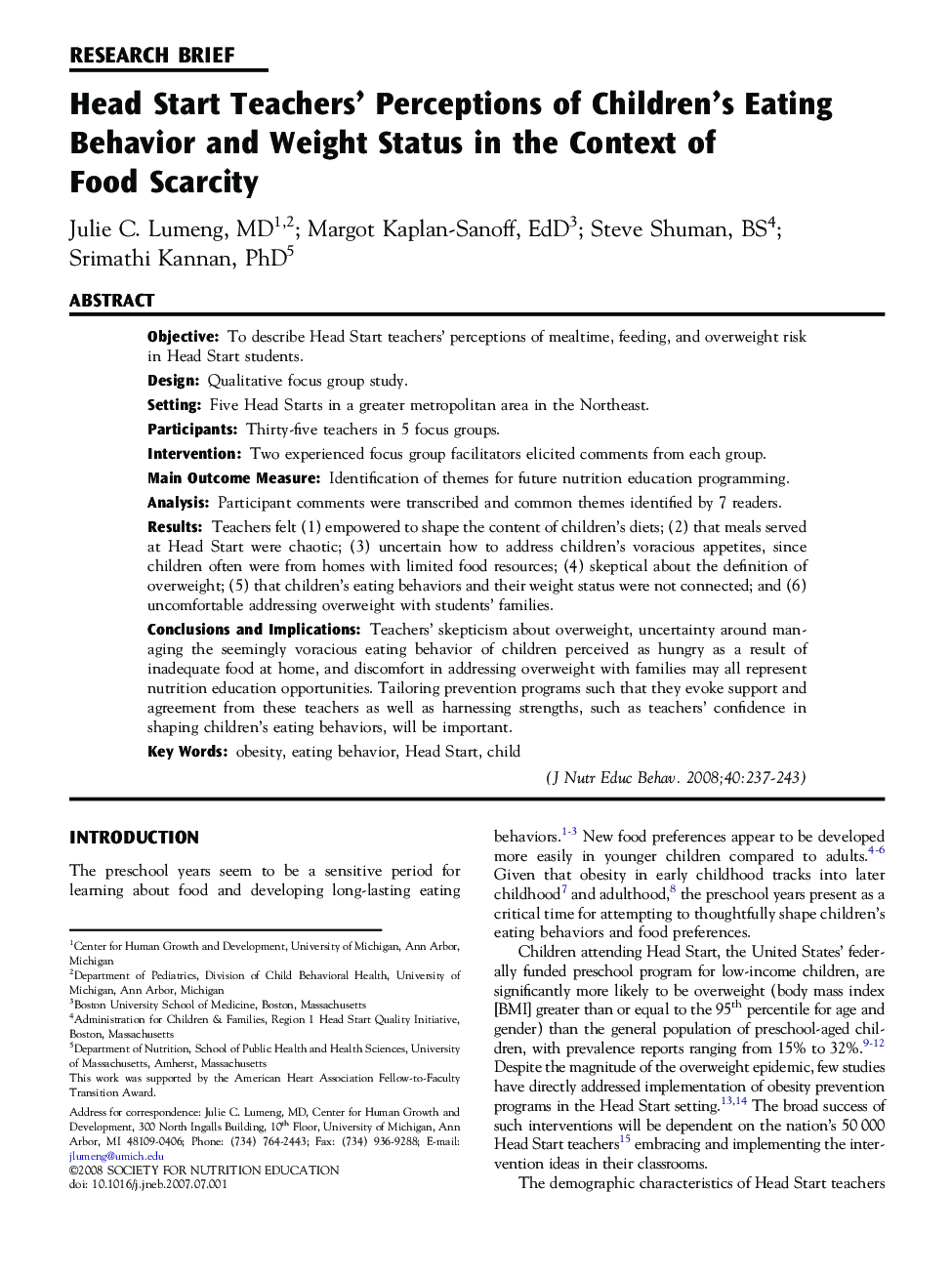| Article ID | Journal | Published Year | Pages | File Type |
|---|---|---|---|---|
| 362606 | Journal of Nutrition Education and Behavior | 2008 | 7 Pages |
ObjectiveTo describe Head Start teachers' perceptions of mealtime, feeding, and overweight risk in Head Start students.DesignQualitative focus group study.SettingFive Head Starts in a greater metropolitan area in the Northeast.ParticipantsThirty-five teachers in 5 focus groups.InterventionTwo experienced focus group facilitators elicited comments from each group.Main Outcome MeasureIdentification of themes for future nutrition education programming.AnalysisParticipant comments were transcribed and common themes identified by 7 readers.ResultsTeachers felt (1) empowered to shape the content of children's diets; (2) that meals served at Head Start were chaotic; (3) uncertain how to address children's voracious appetites, since children often were from homes with limited food resources; (4) skeptical about the definition of overweight; (5) that children's eating behaviors and their weight status were not connected; and (6) uncomfortable addressing overweight with students' families.Conclusions and ImplicationsTeachers' skepticism about overweight, uncertainty around managing the seemingly voracious eating behavior of children perceived as hungry as a result of inadequate food at home, and discomfort in addressing overweight with families may all represent nutrition education opportunities. Tailoring prevention programs such that they evoke support and agreement from these teachers as well as harnessing strengths, such as teachers' confidence in shaping children's eating behaviors, will be important.
